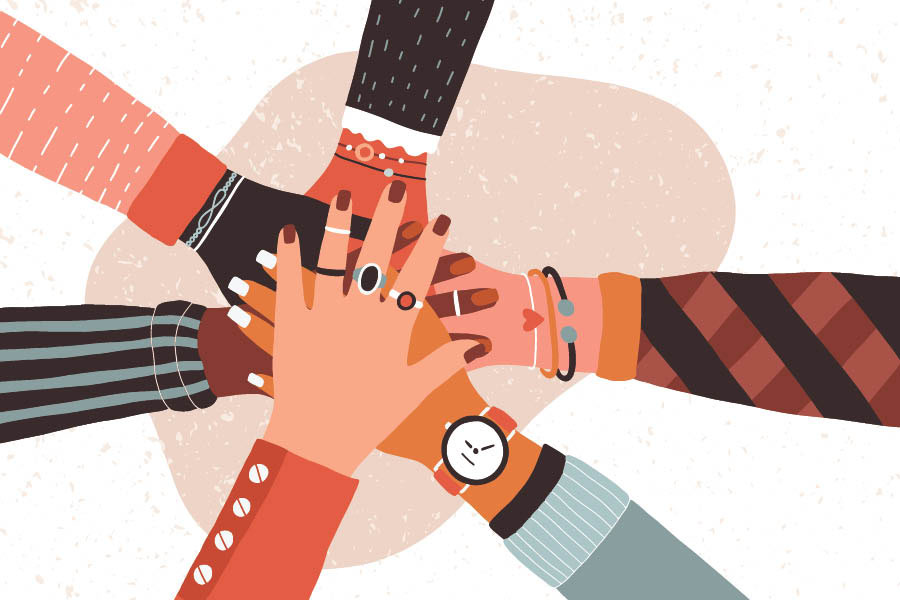I am 19 years old and have been dating my girlfriend for the past two years. I sometimes feel like my partner doesn’t trust me and keeps asking me where I am going and whom I am hanging out with. Lately, she’s been insisting on going through my phone, my Instagram account and my conversations with friends. She says I should be okay with this if I have nothing to hide. I don’t have anything to hide but I’ve been feeling really nervous that she will see something that she doesn’t like. What should I do?
— Nervous Naman
Dear Nervous Naman,
What you’re grappling with sounds tough. Feeling like your partner doesn’t trust you and constantly wants to know your every move can be stressful. First off, it’s important to recognise that your feelings of discomfort are completely valid. Demanding access to your phone, social media accounts and information about your whereabouts seems like your girlfriend is crossing a line into controlling behaviour. You have every right to feel uneasy about this, especially if you’ve got nothing to hide.
For readers who might be going through something similar, please note that unhealthy relationship dynamics can occur between couples of any gender. Any gendered language used below is only to address Naman’s specific situation.
It’s okay to have unfiltered conversations with friends
Having your own space – both online and offline – is an integral part of a healthy relationship. Being your unfiltered self with loved ones, without worries of surveillance, is fundamental.
If you find yourself discussing your partner with friends – let’s say, over text messages – ask yourself whether you are hiding these conversations from her because they are malicious or because you simply want some privacy.
If you’re in a situation where you find yourself saying unpleasant things about your partner behind her back all the time, you may want to re-evaluate whether this relationship is the right fit for you.

A network of community support is important to ensure that you are being true to yourself and your needs
However, if it comes from a genuine need for privacy – it is understandable. Conversations with friends can help us stay grounded, remind us what we care about, and process our feelings before we speak with our partner. A network of community support is important to ensure that you are being true to yourself and your needs. If your partner is against this, it may be a red flag. Emotional abusers and manipulators often cut you off from your support systems to maintain control.
Communication with your partner is key
If you do not believe that she is intentionally manipulative, have an honest conversation about how you both are feeling about each other.
Sometimes, insecurities can be triggered because of external circumstances, like new responsibilities or changes in communication patterns. Have you recently started a new course or new job? Have you recently made new friends? Has there been a shift in the pattern and cadence of communication you were both used to?
Gently ask about her feelings – is there something specific that triggers these feelings for her? Understanding where she is coming from may alleviate some anxieties and strengthen your bond. However, avoid using accusations like “crazy” or “you’re overreacting”. These are more likely to make her feel invalidated and defensive, which may make it difficult to have an honest and productive conversation.

Sometimes, insecurities can be triggered because of external circumstances, like new responsibilities or changes in communication patterns, so communication with your partner is key
You don’t owe your partner constant updates on your whereabouts
Similarly, if she uses accusatory language or demands access to your private information, it may signal a toxic dynamic. There’s a difference between sharing what you’re up to and where you’ll be because you want to, and your partner demanding information about what you’re doing and why.
Demanding, guilting and blackmailing are all types of emotional manipulation. “Why can’t you show me your phone if you have nothing to hide?” is one such example.
Healthy relationships can have boundaries – and boundaries around tech
Dating someone doesn’t mean you have to be okay with everything they want to do. It certainly does not mean you have to grant them access to every aspect of your life, including your technology, and personal interactions with others.
Setting boundaries may involve having an explicit conversation about when and how she can access your phone or inquire about your whereabouts. If, even after this conversation, she continues to disregard your privacy and space, you may want to re-evaluate the overall health of the relationship.
Understanding the ‘honeymoon phase’
You also mentioned that your relationship has crossed the two-year mark. Experts believe that couples experience a “honeymoon phase” that can be anywhere from two months to two years long. The phase is marked by increased happy hormones, and feeling like everything is “perfect” about your partner and relationship. As you exit this phase, you may suddenly start to notice flaws you had never seen before or a shift in how the relationship makes you feel.
It is important to reassure her that you feel committed to each other as you navigate this transition. Continue to put in the effort you put in to woo each other and continue to create new shared experiences together. The unfamiliarity of this phase can be daunting, which makes it even more important to communicate your feelings.
Remember, Nervous Naman, you don’t have to go through these changes alone. Loop in trusted friends for support to help you navigate what may be a complicated phase for you and your partner.
Hang in there, you’ve got this!


